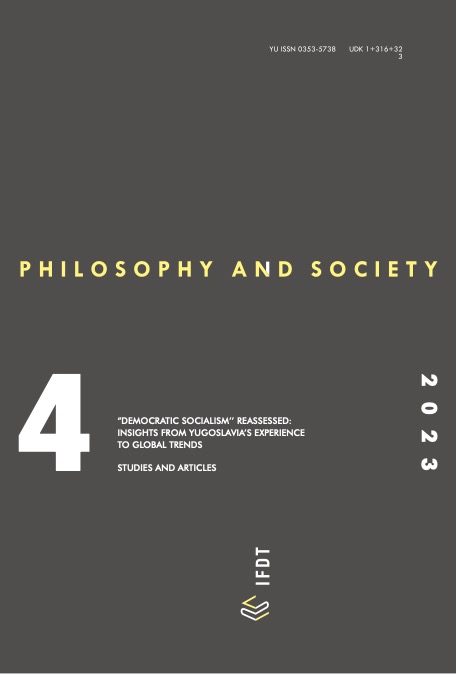THE SPECTRES OF THE YUGOSLAV WARS: MINORITIES’ RESPONSE TO STATE DISINTEGRATION
THE SPECTRES OF THE YUGOSLAV WARS: MINORITIES’ RESPONSE TO STATE DISINTEGRATION
Author(s): Aleksandar PavlovićSubject(s): Politics and Identity, Peace and Conflict Studies, Wars in Jugoslavia
Published by: Institut za filozofiju i društvenu teoriju
Keywords: Yugoslavia; Yugoslav wars; Minorities; Serbs; Croats; Albanians; Bosniaks
Summary/Abstract: This article discusses minorities’ responses to conflicts in post-1989 Eastern Europe that focuses on them embracing violence to cede from their original state and join their motherland or gain independence. The discussion focuses on the actions of minorities in the contested areas in the former Yugoslavia at the peak of the country’s 1990s crisis, described as a drive towards ethnic self-determination. Faced with political crisis, disintegration and/or oppression, most ethnic groups opted for confrontation, secession and armed revolt/resistance with maximalist independence claims instead of cooperation, integration or compromise. Furthermore, I discuss some possible implications of the grim Yugoslav experience. As I argue, to understand why minorities reverted to war in the former Yugoslavia and beyond, we perhaps need to recognize that post-1989 revolutions in Eastern Europe were predominantly the expressions of nationalist revolt and not democratic revolutions. In conclusion, I discuss some general conditions required for a minority to rise to arms, following Jenne’s theory that stresses the role of external patrons in spurring internal conflicts. I emphasize this synergy of ethnic nationalism, external support by the kin state and/or international actors and minority’s oppression as decisive for the eruption of ever-present antagonisms into a larger conflict and war.
Journal: Filozofija i društvo
- Issue Year: 34/2023
- Issue No: 4
- Page Range: 653-669
- Page Count: 16
- Language: English

